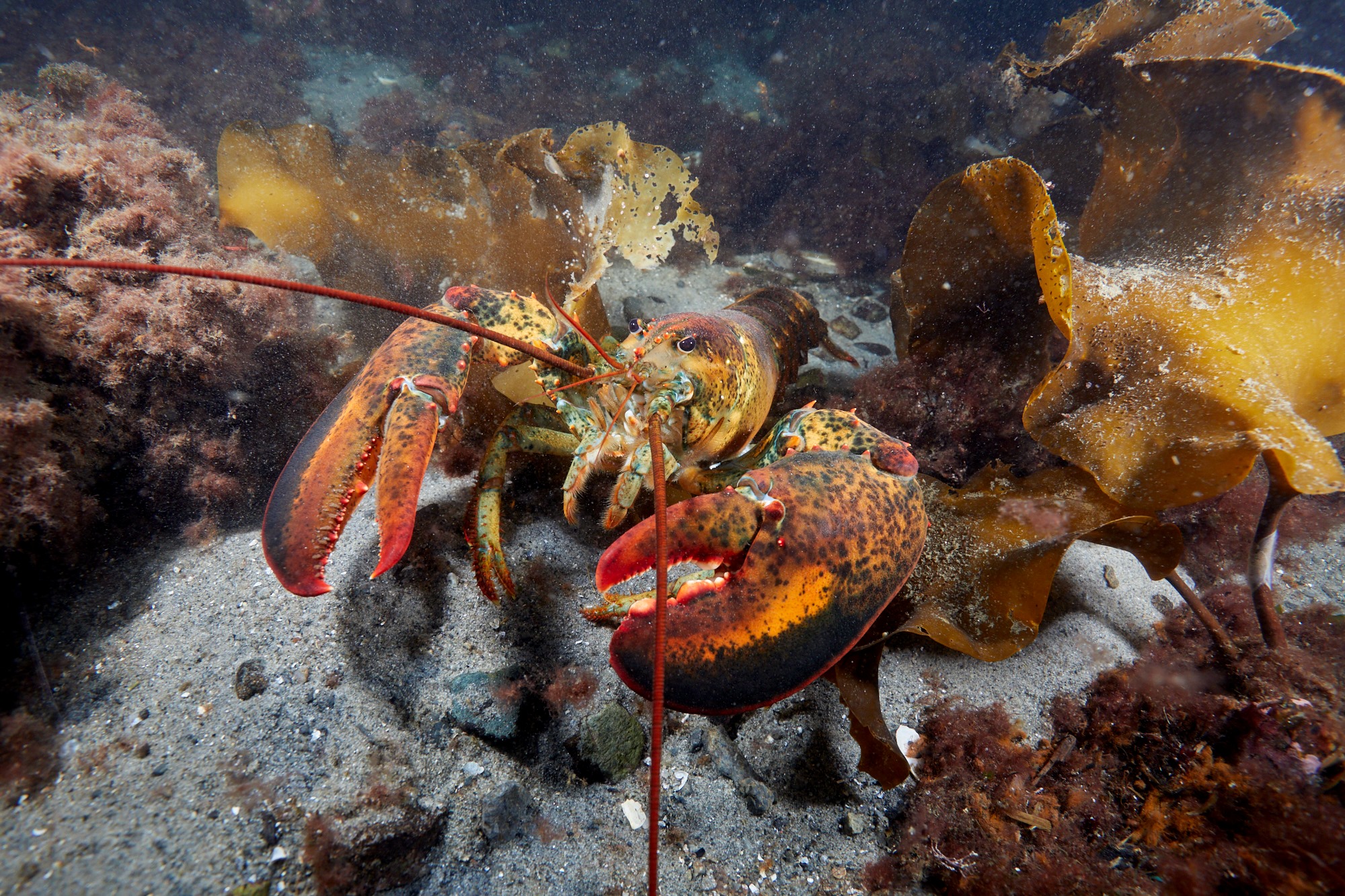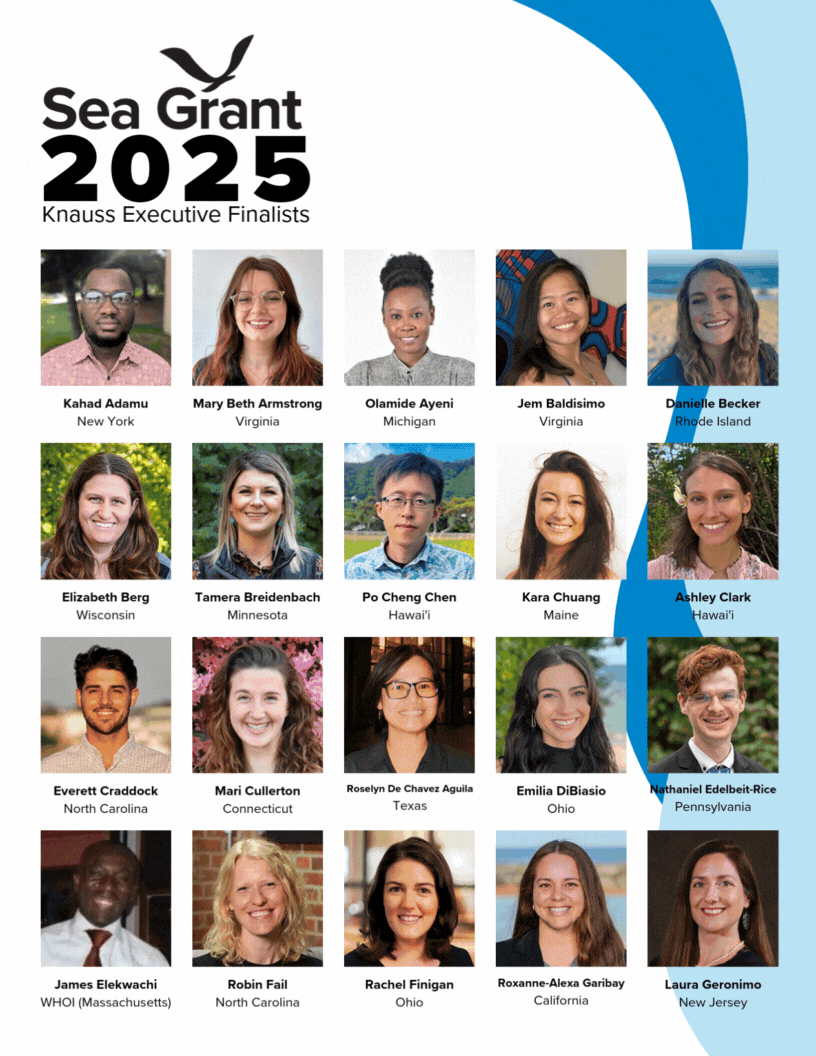By: Lauren Bonatakis,
Electronic Technologies Coordinator,
NOAA Fisheries Office of Science and Technology
I am an analytical person. When I have a decision to make, I collect all the information I can and I think through all possible outcomes. So when I decided to quit my full-time, benefitted job to move to a new state for a year of service with AmeriCorps on a whim, it was a surprise to those who know me best. It was also one of the best decisions I have made.
Like many recent college graduates, I was struggling to figure out my career path. With a degree in biology and not much research experience, I felt my job opportunities were limited. Though I always had a strong interest in ecology and marine science, my undergraduate college was largely preparatory for medical sciences, with a small, brand-new environmental science program. Because I was best prepared for a career in medical science research, I initially chose the path of least resistance. But after about two years working as a research technician in a molecular biology lab, I knew I wanted to make a change.
This was a challenge. I had virtually no practical experience in ecology which made competing in a sparse job economy even harder. That’s when AmeriCorps came into view. I knew nothing about AmeriCorps before I stumbled across an advertisement for a position with AmeriCorps Cape Cod. Upon reading the program description, and realizing that the deadline to apply was fast approaching, I threw my name in the hat, not expecting much. To my surprise, within a week I had an interview, and a few days later I had an offer to join the program. Now, I had a decision to make.
AmeriCorps is a national service program where members commit 11 months to participating in community service. There are several programs that fall under the AmeriCorps umbrella all around the United States, with varying focus areas ranging from food security to education to natural resource management. AmeriCorps Cape Cod fell into the latter category, with their four focus areas being natural resource management, disaster preparedness and response, environmental education, and volunteer engagement. I saw this program not only as a way to give back to a community that I have strong childhood ties to but also as a way to build my skills in natural resource management and expand my knowledge. To me, those benefits significantly outweighed the costs of losing a salary for a year. So. without further thought, I accepted the position and moved to Cape Cod, MA.
This was a pretty big change. AmeriCorps service is technically unpaid, but members are given a very small living stipend to help cover some of the necessities. Cape Cod is a vacation destination with few housing options available. Because of this, AmeriCorps Cape Cod provides housing for all of their members. During my time, there were 30+ members split between 3 houses, which meant that I was living in a house with 13 other people! Within the span of a few weeks, I went from having a full-time job and an apartment to receiving a small living stipend and housing with 13 roommates. To a lot of people, this may seem like the wrong decision, but for me, it was perfect.
My time serving in Cape Cod was unique in that each of my days was very different. One day I’d be tackling large, landscape-scale land management projects and the next I’d be teaching elementary school students about overfishing. What I benefited from the most in terms of career development was an “independent placement”, which is like an internship within AmeriCorps. I was placed with the shellfish division of the natural resource department in Chatham, MA. I spent two full days a week serving alongside the Shellfish Propagation Specialist, learning about shellfish aquaculture and the laws and policies that govern shellfish fisheries in Massachusetts. The new experiences I gained that year confirmed what I already knew – this was the direction I wanted to take.
Following my year of service with AmeriCorps Cape Cod, I continued to build my natural resource management skills by serving a second AmeriCorps term with another program that focused on land conservation and youth- and community- based environmental education. I was able to take my newly acquired skills from my two service programs and earn a spot in a natural resource focused graduate program at Louisiana State University. Ultimately, AmeriCorps is what led me to the Knauss Fellowship!
As it turned out, my whimsical decision to drastically change the trajectory of my life worked out in the best way possible. The experiences I went through, skills I learned, network I built, and relationships I developed helped me mold my career path, all while serving over 3,400 hours of service for my community.


